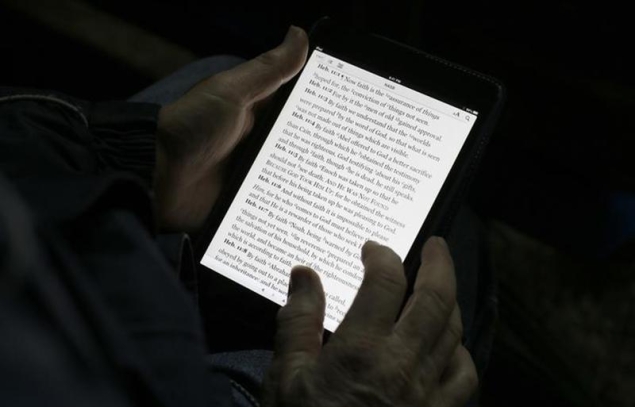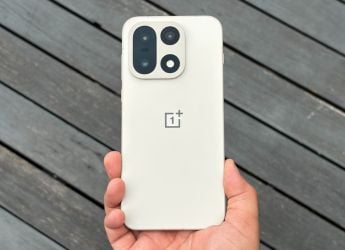- Home
- Internet
- Internet News
- Apple hindering ebook anti trust work, says NY monitor
Apple hindering ebook anti-trust work, says NY monitor

Attorney Michael Bromwich said in a document filed in Manhattan federal court that he's been largely cut off from top executives at Apple, which argued earlier this month that his investigation was interfering with its business operations.
Bromwich, a former inspector general for the Justice Department, was appointed as an external compliance monitor to review Apple's antitrust and training policies after U.S. District Judge Denise Cote concluded following a bench trial that Apple disobeyed antitrust laws by trying to raise electronic book prices in 2010.
"In my 20 years of doing oversight work, I have never before had the entity over which I was exercising oversight unilaterally dictate who could be interviewed, even in those instances in which I have dealt with very sensitive matter, including highly classified matters of national security," Bromwich wrote, noting that he had been appointed as a monitor three times before and had conducted scores of investigations in the public and private sector and supervised hundreds of others.
An Apple spokesman did not immediately respond to a request for comment Monday.
Bromwich said that in the two months since his October appointment, he and his staff had been permitted 13 hours of substantive interviews or discussions during two visits to California.
He said seven of the 11 people he had been permitted to interview were lawyers rather than business people and the interviews had to take place at a remote location in Sunnyvale, California, rather than at the company's headquarters in Cupertino, California.
A month after he was told all requested materials would be produced promptly, he said, he had received only 303 pages of documents.
He said he was told by an Apple director after his mid-October appointment that executives would "never get over the case" and that they were extremely angry and that many people in the company were fearful.
Justice Department lawyers said in court papers filed Monday that it was "remarkable, and wholly unbelievable" that Apple was claiming that one-hour interviews with its board members and senior executives will result in a loss of market share growth and interfere with developing and marketing new products.
Apple said in court papers earlier this month that that the judge's order as it is being carried out by Bromwich was "flatly unconstitutional and will be reversed on appeal."
Apple lawyers said Bromwich had launched a "broad and amorphous inquisition" and was "conducting a roving investigation that is interfering with Apple's business operations, risking the public disclosure of privileged and confidential information, and imposing substantial and rapidly escalating costs on Apple that it will never be able to recover it if prevails on its pending appeal."
"Apple is suffering from Mr. Bromwich's unwarranted inquisition of the company's high-level executives and board of directors," they wrote.
Bromwich said in his court papers that Apple's claims "bear no relation whatsoever to the activities we have attempted to conduct."
"The request for limited preliminary background interviews to learn about corporate structure, process, culture, and tone does not convert monitoring into an investigation of any kind, much less into a 'roving investigation' or a 'broad and amorphous inquisition,'" he said.Catch the latest from the Consumer Electronics Show on Gadgets 360, at our CES 2026 hub.
Related Stories
- Samsung Galaxy Unpacked 2025
- ChatGPT
- Redmi Note 14 Pro+
- iPhone 16
- Apple Vision Pro
- Oneplus 12
- OnePlus Nord CE 3 Lite 5G
- iPhone 13
- Xiaomi 14 Pro
- Oppo Find N3
- Tecno Spark Go (2023)
- Realme V30
- Best Phones Under 25000
- Samsung Galaxy S24 Series
- Cryptocurrency
- iQoo 12
- Samsung Galaxy S24 Ultra
- Giottus
- Samsung Galaxy Z Flip 5
- Apple 'Scary Fast'
- Housefull 5
- GoPro Hero 12 Black Review
- Invincible Season 2
- JioGlass
- HD Ready TV
- Laptop Under 50000
- Smartwatch Under 10000
- Latest Mobile Phones
- Compare Phones
- Red Magic 11 Air
- Honor Magic 8 RSR Porsche Design
- Honor Magic 8 Pro Air
- Infinix Note Edge
- Lava Blaze Duo 3
- Tecno Spark Go 3
- iQOO Z11 Turbo
- OPPO A6c
- Lenovo Yoga Slim 7x (2025)
- Lenovo Yoga Slim 7a
- Lenovo Idea Tab Plus
- Realme Pad 3
- Moto Watch
- Garmin Quatix 8 Pro
- Haier H5E Series
- Acerpure Nitro Z Series 100-inch QLED TV
- Asus ROG Ally
- Nintendo Switch Lite
- Haier 1.6 Ton 5 Star Inverter Split AC (HSU19G-MZAID5BN-INV)
- Haier 1.6 Ton 5 Star Inverter Split AC (HSU19G-MZAIM5BN-INV)







![[Sponsored] Haier C90 OLED TV | Dolby Vision IQ, 144Hz OLED and Google TV in Action](https://www.gadgets360.com/static/mobile/images/spacer.png)









